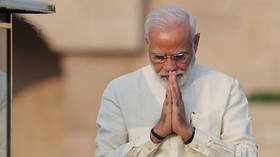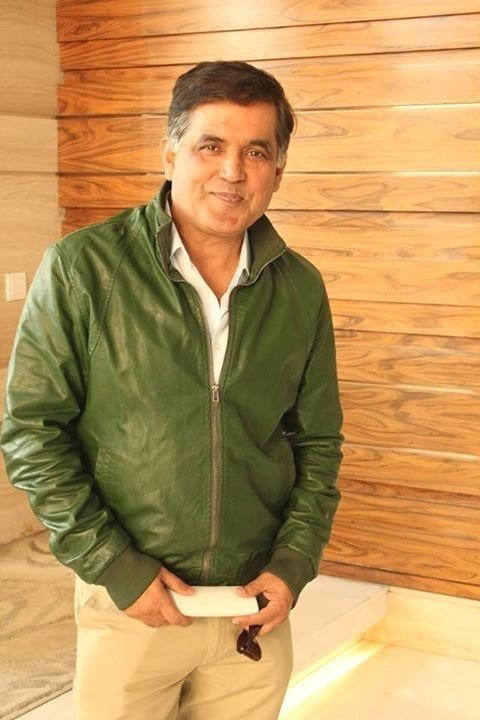Modi’s strong & silent approach may have tamed the beast of the anti-Citizenship Act protests

Protests against India’s new Citizenship Act have hogged headlines and filled the streets for two months — but Prime Minister Narendra Modi’s approach to the crisis may actually tame the beast many thought could spur his downfall.
The seemingly innocuous act, passed by parliament in December 2019, fast-forwards the citizenship process for Hindus, Sikhs, Buddhists, Christians, Parsis, and Jains — all of which are persecuted minorities in the three neighbouring Islamic states of Pakistan, Afghanistan and Bangladesh. The law, however, was branded “anti-Muslim” by Modi’s detractors who argue that it puts Muslims seeking to immigrate to India at an unfair disadvantage. The propaganda effort turned out to be very successful.
Misinformation feeding anger
First, it tapped into the raw anxiety of Indian Muslims who were fed misinformation and told that the law marked the first step toward their disenfranchisement, despite multiple official clarifications. Amidst the first wave of protests in December, Modi reassured Muslims who are genuine citizens of India and “sons of the soil” that they “don't need to worry at all.” He also condemned opposition politicians for “spreading rumors” that Muslims would be sent to detention camps.
Also on rt.com India kickstarts Lord Rama shrine construction instead of mosque on disputed land, after landmark court rulingPolitical opponents attempted to increase the pressure by passing resolutions against the law in state assemblies like Kerala and Punjab, despite the fact that, constitutionally, citizenship is a matter which doesn’t fall under their jurisdiction.
Predictably, Indian and Western media then fished in the troubled waters, producing dramatic headlines which only inflamed the situation. The New York Times wondered if India is becoming a Hindu nation, while the BBC scaremongered about the“anti-Muslim” law.
Multiple cities in the United States staged anti-Citizenship Act protests, though there were hardly many Indian faces discernible in the crowds at those rallies. The United Nations human rights office and a US federal panel on religion also branded the law discriminatory. The European Union planned to vote on a resolution condemning the law as “fundamentally discriminatory in nature” but postponed it until after Modi's March 13 visit to Brussels. New Delhi naturally regarded that decision as a diplomatic victory.
Echoes of past ‘revolutions’
A tiny enclave in India’s capital, Shaheen Bagh, became the epicentre of the protest movement — and it bore all the markings of a West-backed movement, similar to those witnessed at Maidan in Ukraine or Tahrir Square in Egypt; mural art, revolutionary songs, media savvy and technological deftness all passed off as spontaneous and signifying a revolution that never really came.
This was Modi’s gravest crisis in six years. Yet, the PM chose to meet the mushroom cloud of protests with mostly silence, using a light hand in the face of provocative behavior.
Also on rt.com Indian student injured after gunman opens fire on citizenship bill protesters in Delhi (VIDEO)For a time, many people, including some of his own supporters, wondered if he had lost control — but it appears his calm approach may have been part of a broader strategy. Modi is familiar with the contours of power working against him, both at home and abroad. Now his followers, which are the majority in India, have been made aware of the gravity of these forces at work — and that realization could lead to a consolidation in his support and even see millions more Indians lining up to back him.
At the same time, Modi’s political rivals are cottoning on to his political game. Sensing a turn in the tide, some are urging protesters to withdraw and head home. Credible surveys have revealed that Modi remains muscularly popular — far from the severely bruised leader his opponents had bargained for when the protest movement began.
Modi’s ministers, on the other hand, are linking the protests to machinations and interferences by arch-rival Pakistan. The theory is that Islamabad, unable to whip up enough international support for the disputed Kashmir region (after New Delhi stripped it of its self-governing status last year), has attempted to spur social unrest and trouble for its neighbor — an insinuation which never fails to provoke anger in Indians.
Also on rt.com ‘No scope for outside interference’: India tells Europe to mind its own business as MEPs consider anti-citizenship law resolutionsBilateral ties remain intact
Despite plenty of platitudes about ‘discrimination’ and ‘human rights’ from around the world, Modi has yet to face any serious disciplinary move from a major nation over his Citizenship Act.
Brussels, Washington can make as much noise as they want; the Western press can send an army of correspondents to India’s capital and NGOs can complain all they like — but ultimately, none of that will make much difference to Modi’s standing within India — and indeed, in the world beyond his borders, what really matters most to the PM is that India’s important bilateral ties remain intact.
As long as there are no bruising sanctions imposed and the majority of his people are behind him, Modi can afford to sit back and let the forces working against him tire themselves out.
Crucially, important alignments are also beginning to emerge in Modi’s favor. All parties in alliance with him are backing him to the hilt on the Citizenship Act. The Supreme Court is due to make a call on petitions against the law later this month and it is unlikely to stand against the act.
Meanwhile, the Shaheen Bagh protests are alienating the rest of the capital, causing traffic jams, affecting local business, and rendering schools and hospitals in the area virtually inoperable. To make matters for demonstrators even worse, incriminating videos have emerged of a top organizer hatching plans for India’s northeastern states to secede from the mainland. Such talks has raised the hackles of a nation which had its eastern and western arms severed on religious grounds at the stroke of independence seven decades ago.
Politics is not a zero-sum game, but Modi may be set to harvest a bounty nobody saw coming out of the current crisis.
Like this story? Share it with a friend!
The statements, views and opinions expressed in this column are solely those of the author and do not necessarily represent those of RT.
















